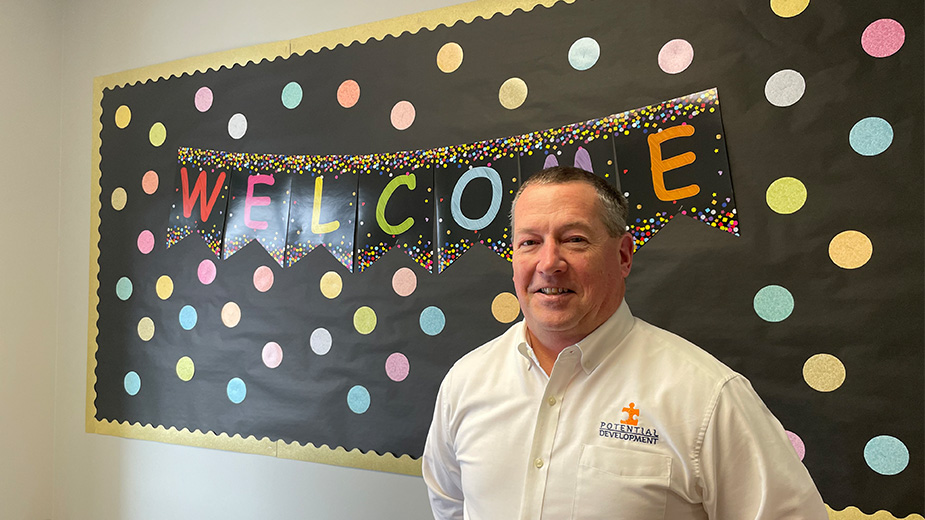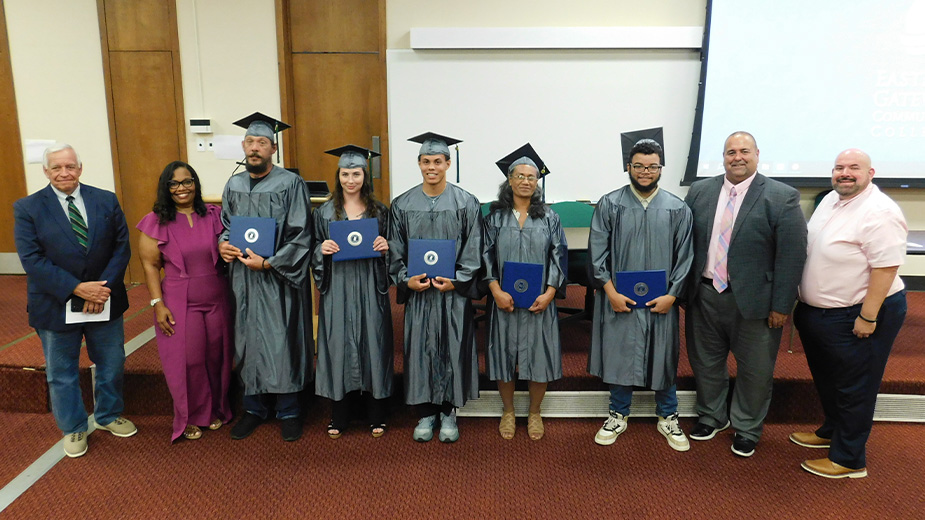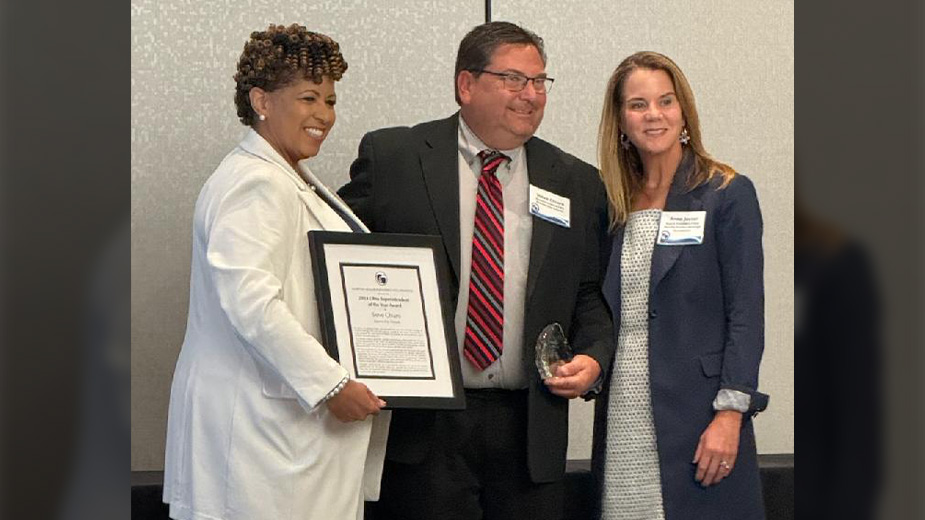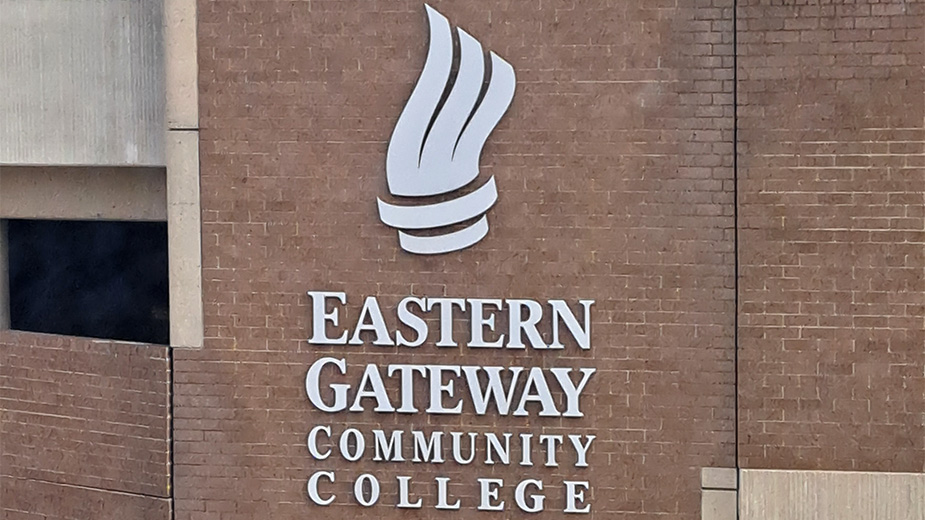Valley Programs Meet Growing Need for Autism Support
YOUNGSTOWN, Ohio – The rate of children being diagnosed on the autism spectrum has increased each year, with 1 in 36 children diagnosed in 2023.
And for every diagnosis there is a different story, including youngsters with a variety of support and educational needs, as well as a family that may be struggling to know where to start.
That can be where two local programs – Potential Development and The Rich Center for Autism – can become a resource to help that child and family navigate the journey ahead.
Potential Development operates a program from preschool through high school, with preschool students attending the school at Indianola Avenue from age 2 ½ to 6.
“For Potential Development, the preschool is the starting point for students and their families,” said Paul Garchar, CEO of Potential Development. “Typically, the calls we get at the preschool are parents who just found out their son or daughter is on the spectrum. They’re lost, overwhelmed, not sure where to go, so it’s really dependent upon us to reach out to those parents and reassure them that their son or daughter is going to be fine.”
Potential Development’s preschool offers small classroom sizes, a library, indoor and outdoor play areas and sensory rooms – one for quiet and regrouping and a second room for activity and burning off excess energy. As students progress through the years, they can participate in e-sports and extracurricular activities such as basketball, bowling and track. There is a special needs prom in the spring, hosted by the school. Some have participated in the YSU English Festival and done very well, according to Garchar, and some students will take the ACT in preparation for community college or Youngstown State University.
“In addition to the academic work that students do, we really want to make their experience here as typical as possible,” Garchar said. “Even though our students learn differently, they are still entitled to enjoy their grade school and high school experience, the same as their typical peers. We really work hard on doing that.”
According to Autism Speaks, from 2021 to 2022, nearly 74% of students who received special education in the autism category graduated with a diploma. In Ohio, the number is slightly lower at 70.8% with diplomas and 22.7% with a certificate. In Pennsylvania, 95.3% graduated with a diploma.
Some of the local students will walk across the stage at Stambaugh Auditorium, where Potential Development celebrates the achievement and transition into adulthood of those finishing the high school program.
“I think it is another reassuring point for parents to know that when they come to Potential Development for the preschool, it’s just the beginning of a very long journey,” Garchar said. “We’re going to be with that student and with that family, hopefully, all the way through 12th grade, and we can hand their son or daughter a diploma and make sure they are ready for the rest of their lives.”
Rich Center for Autism
Through the Rich Center for Autism, students are part of the YSU campus. The Rich Center is located near Stambaugh Stadium, and Michael Latessa, executive director of the center, points out that many YSU students walk past it daily but may not know what it is about.
The Rich Center finds ways to reach out to the students on campus and collaborate, not only during Autism Awareness and Acceptance Month in April, but at various times during the school year. Latessa said the school has set up a table with cookies and refreshments outside, just to get students to stop and talk, learn more about autism and realize the Rich Center is a partner with the campus.
The Rich Center has eight YSU graduate students currently working in the building, and Latessa said it looks like there will be nine next year. These students include those studying school psychology, counseling, social work and even business. Additionally, 21 undergraduate YSU students were employed at the school.
“It’s been a great experience expanding on that component, bringing in more of our YSU students into the mix,” Latessa said. “They’re learning, working well with children on the autism spectrum as they go on to whatever their field should be.”
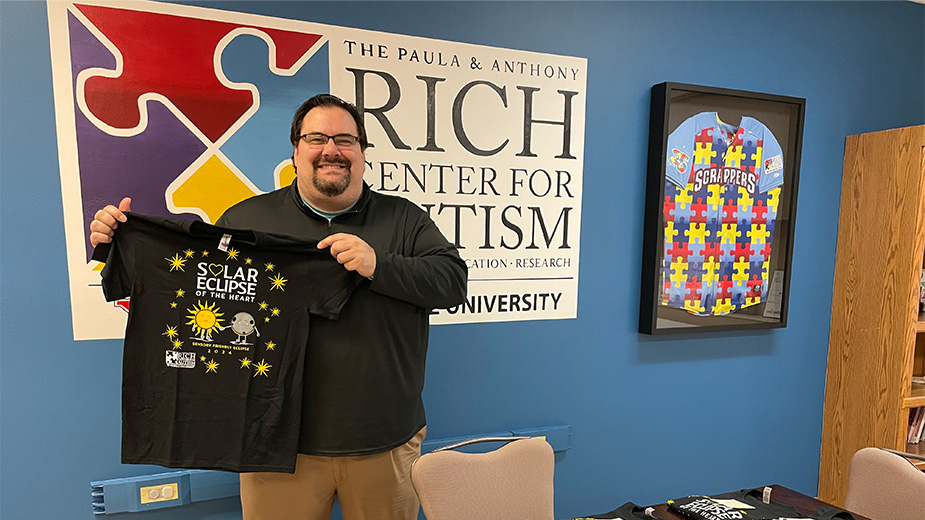
YSU dental hygiene students come and run a clinic for the autism students, and nursing students job shadow the nurse at the school. YSU student-athlete ambassadors came in and promoted acceptance and awareness. Some YSU students are involved in STEM research projects, working with RoboKind, a social-emotional learning platform.
“The Rich Center was founded with those three core principles on the logo – treatment, education and research – and research has been the slowest to get going, but we’re really excited with what the future of that component is as well,” Latessa said.
When the solar eclipse came to the YSU campus with 99% coverage, the Rich Center threw a party for the students and their families who wanted to gather to watch it with a group. Students practiced putting on the safety glasses ahead of time, and lessons leading up to the day included those about the solar system.
The Rich Center set up a tent on the basketball court near the school on the day of the event and had T-shirts and eclipse cookies for the students.
“It’s exciting for everybody, all involved,” Latessa said, “and we’re no different here.”
The only difference was making sure students knew what was happening and had a safe environment to enjoy it, surrounded by people who they were familiar with seeing.
The Rich Center helps up to 75 students as young as 3 and serves them up to age 21, with students broken into segments. Some attend inclusion classes at St. Charles, where they succeed with support of teachers, aids and the Rich Center room, which gives them their own place to study, take extra time for tests or just take a break from the stimulation that a school day can bring. From St. Charles, high-functioning Rich Center students may go on to various high schools in the area, and Latessa said the center works with those high schools to help make a smooth transition for students.
Recently, three high school students from the Rich Center completed a 3D printing course at the YSU Center for Excellence, which has a grant to encourage teaching additive manufacturing skills to those with mental disabilities.
According to Latessa, the Rich Center programs focus on helping older students gain independent living skills and vocational skills. Some students leave the high school to go out regularly into the community and work with various organizations, sometimes leading to part-time employment.
A lot of support
The Rich Center and Potential Development are just two of the organizations providing assistance to youngsters and families navigating autism in the Mahoning Valley. The two programs co-exist easily during a time when more students than ever are being diagnosed on the spectrum. The programs have differences, but what is important to Garchar and Latessa is knowing students and families are getting the support they need.
“We encourage families to explore all their possibilities,” Garchar said. “They’re going to know. We tell parents all the time, you will know as soon as you enter that facility, as soon as you enter that classroom, you’re going to know if that is a good fit for your son or daughter. Whether it be here or somewhere else, we just want what is best for each student.”
Latessa points out he has personally interacted with people from larger cities contemplating a job offer in the Mahoning Valley and who were first checking on available autism resources for their child. And listening to them, Latessa said he learned that local autism programs here are even better than what they have where they are from. From The Rich Center and Potential Development to resources like the Autism Society of Mahoning Valley, Dylan’s House and Purple Cat, students and young adults on the autism spectrum have a lot of people in their corner as they navigate the world a little differently.
“So, obviously, April is a good month to acknowledge that and keep doing those things and expanding and growing,” Latessa said. “With a 1 in 36 diagnosis rate, chances are a family that’s impacted by autism is going to need to make that decision (to move), and having resources like the Rich Center for Autism and all the other ones here are vital to our local community.”
Pictured at top: Paul Garchar, Potential Development CEO.
Copyright 2024 The Business Journal, Youngstown, Ohio.
